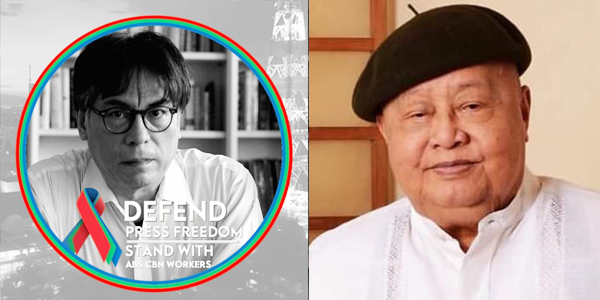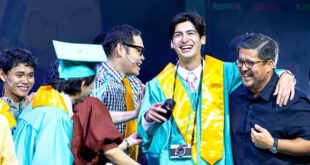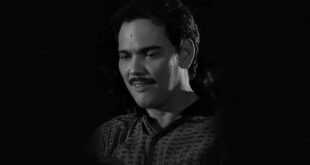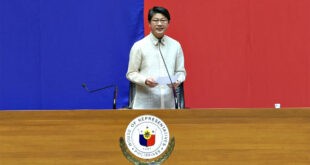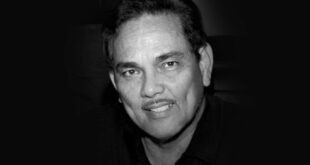NAKAAGAW din ng aming pansin ang tinuran ni Direk Carlitos Siguion Reyna sa kanyang post.
“When your hatred of a broadcast network and the family that established it overpowers your love—or respect, if you’re incapable of love—for freedom of expression, and leads you to more red-baiting, I suggest that you’ve forfeited the privilege and respect befitting a National Artist.
“I look forward to the return of normalcy, attend any CCP performance with this “National Artist,” so I can boo him when his name is called. He does NOT belong to the same roster as Francisco Arcellana, Nick Joaquin, Lino Brocka, Eddie Romero, Rolando Tinio, et. al.
“Will the NCCA and the CCP strip this man of the National Artist award? His actions are anti-art, disgraceful, and beneath all contempt.”
Nag-isip pa ako.
Eto pala ‘yun!
Mula kay F. Sionil Jose, National Artist.
ABS-CBN: A Requiem
by F. Sionil Jose
“Way back when the Manila Chronicle was a major daily, its Sunday column, Inside Malacanang, lampooned former Senator Helena Benitez. I confronted Celso Cabrera, the columnist. He was a frequent Solidaridad customer, an avid student of the Renaissance. Helena, I told him, as everybody knew was such a decent politician, well loved and respected.
“Celso said, the old man (meaning Eugenio Lopez), the publisher, ordered it. Before I could chide him, he said, I am nobody from Camiling (Tarlac). We were speaking in Ilokano. I am not a good writer. This man gave me a job, a house, a car. And he’ll refund all that I spend on your books. He asked for my balls so I gave them to him.
“The Lopez family is a leading member of the oligarchy—far more powerful than any of the oligarchs, then and now. As a leader of the sugar bloc, it had massive political and economic influence. It made presidents then used its influence to enlarge its economic clout, Meralco, ABS-CBN, etc.
“God knows what billions the family got from government financing institutions to become a haven for communist fronts and communists, among them the late Renato Constantino. One Sunday morning, he called me up at home and asked if I’d open our Solidaridad Galleries—Don Eugenio Lopez wanted to see the Nena Saguil exhibition. I hurried to the Gallery in Malate. Don Eugenio arrived and looked at the exhibit twice then he bought more than half of the show. Surely, there was a good side to this oligarch—his patronage of Filipino art, his Filipinoness as illustrated and epitomized in the Lopez museum.
“Surely, many writers and cultural workers owe him profound gratitude. I sympathize with the hundreds who will lose their jobs but I’ll not mourn the passing of ABS-CBN; its demise, I dare say, is even good for Philippine democracy if it also means the dismantling of the Lopez empire.
“To conclude:
The Lopezes played the double game; they were vociferously anti-American but were the beneficiaries of American largesse in the sugar quota gift from America. Their writers included liberals, fellow travelers and communists but Eugenio Lopez himself personified the lowest form of capitalism. The Filipinos do not really need ABS-CBN. It does not produce goods or food. It has certainly entertained millions but it did not diminish poverty. Again, freedom worked for the rich—but not for the Filipinos.”
Ano na nga ba?
HARD TALK!
ni Pilar Mateo
 HATAW! D'yaryo ng Bayan hatawtabloid.com
HATAW! D'yaryo ng Bayan hatawtabloid.com

